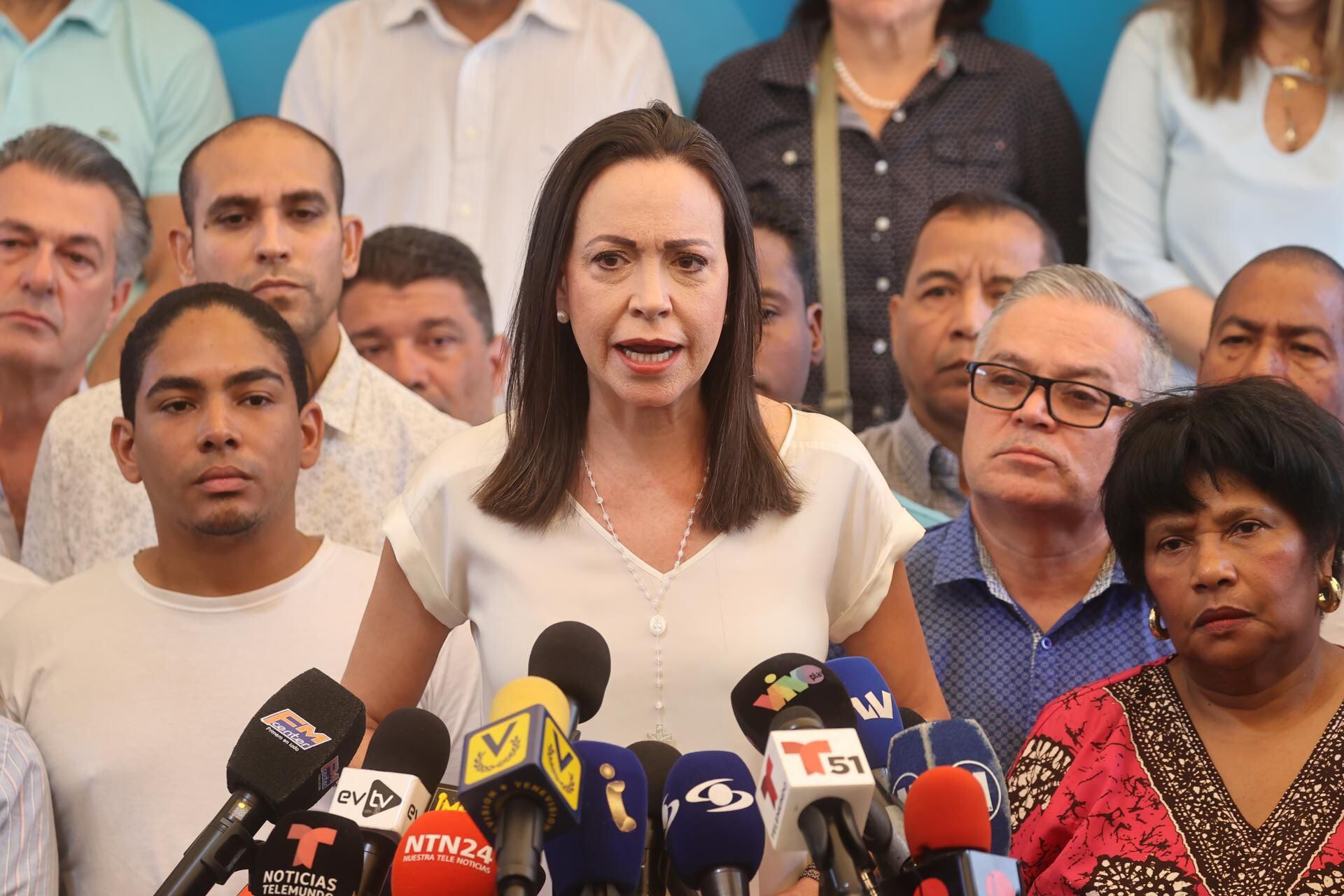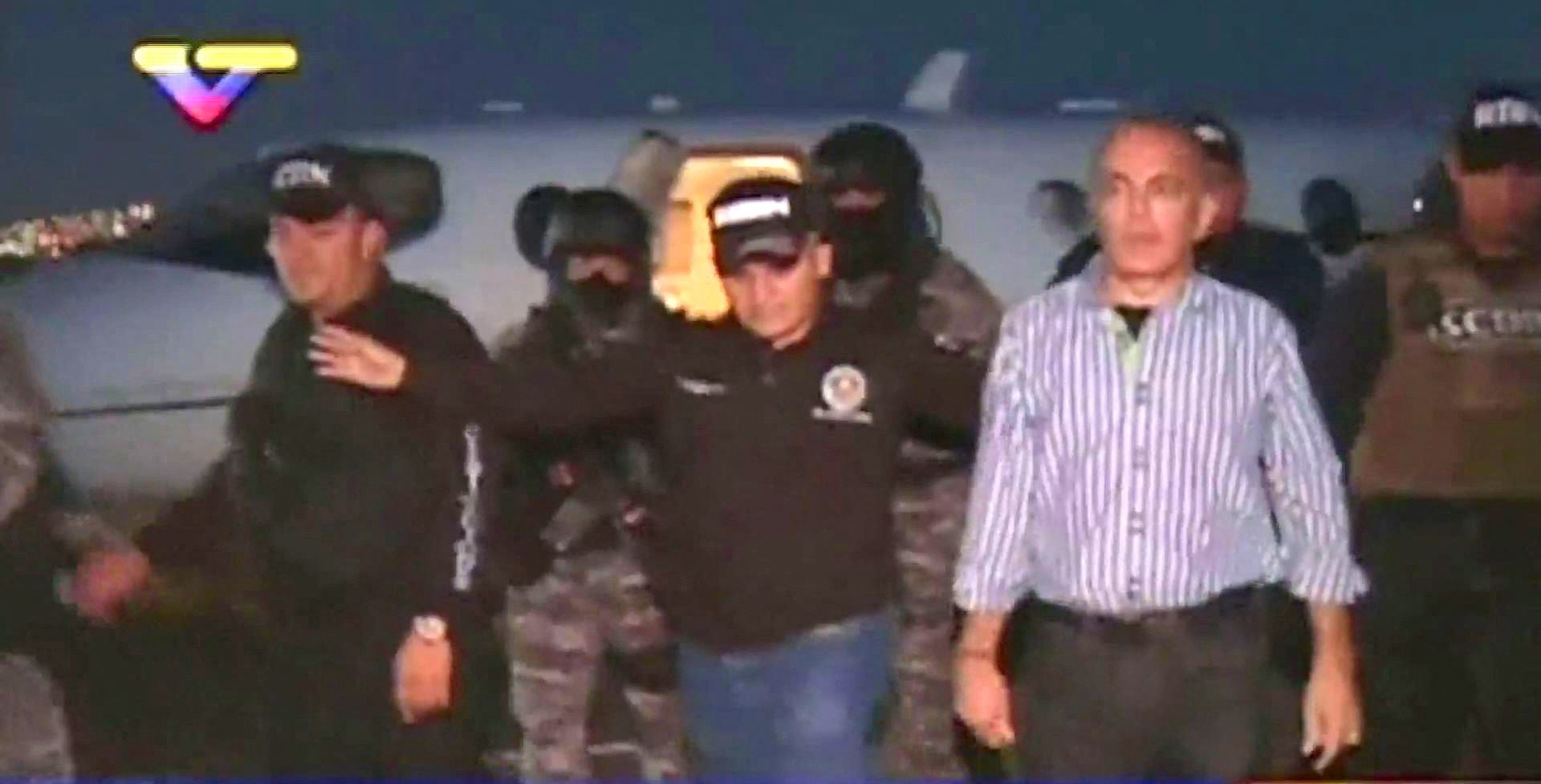The closing of registrations for candidacy for the presidential elections in Venezuela It hit the already shaken opposition even more. Governor Manuel Rosales, a former rival of Hugo Chávez, registered his candidacy for the July 28 elections at the last minute despite not having the leader’s support. Maria Corina Machadowho won the first elections of 2023 and was a favorite in the polls, but is prevented from participating.
TO LOOK: Who is Manuel Rosales, Chávez’s biggest enemy who will face Maduro in the elections in Venezuela
Machado tried to increase the pressure to let her run, but her efforts were in vain and, when the time to register candidates was running out, she chose historian Corina Yoris as her replacement to represent the Democratic Unitary Platform (PUD), which brings together the Unitary Democratic Party (PUD). main opposition parties. Yoris, however, was also prevented from participating.
The PUD reported that it was unable to nominate Yoris’ candidacy and that it “never” had access to the candidacy system on a CNE web platform since the process was opened last Thursday.
Rosales’ party, Un Nuevo Tiempo (UNT), which is part of the PUD, expressed its support for Yoris, but stated that it registered the governor because “opposition forces were on their way to being left out of the electoral race.” and “abstention is not an option”.
Despite this statement, Rosales’ appointment caused a new rupture in the opposition. Although she did not mention it directly, María Corina Machado distanced herself from running for governor of Zulia. “What we warned about for many months ended up happening: the regime chose its candidates,” said Machado. “My candidate is Corina Yoris,” he insisted.
Rosales, in turn, defended his nomination, recognizing the “arduous path” that Machado took.
“I had to make a decision which was to open space for Venezuelans to vote or abstain and make (President Nicolás) Maduro remain there for another six years without doing anything else,” he stated.
The electoral scenario is increasingly complex for the opposition. Machado was a favorite in the polls, but the blockade of his candidacy and that of Yoris leaves his voters with few options. Above all, if the opposition leader does not support your votes.
“After registrations closed, Venezuelans who wanted to vote for change went through a very difficult situation. Not only did they close the door on the candidate chosen in the primaries, but also on her replacement. In the end, Manuel Rosales signed up without María Corina Machado’s consent. Maduro is creating an election to his liking, he says who the candidates are, who participates and who does not participate,” José Carrasquero, a Venezuelan political analyst and specialist in electoral campaigns, told El Comercio.

In addition to Maduro and Rosales, a dozen candidates who presented themselves as opponents competed in the elections. However, the majority were branded “scorpions”, a term used in Venezuela to designate “collaborators” of the Chavista government.
“There are no real candidates, but rather candidates that have no meaning. They are there to make people believe, especially abroad, that there is some kind of electoral competition. Most of them are unknown and have very high rejection rates, and they don’t even appear in research,” says Carrasquero.
Within the opposition, it was clear that if Machado could not run, the only way a candidate could face Maduro was if the opposition leader gave him his support.
Manuel Rosales was a presidential candidate in 2006 against Chávez and one of his fiercest opponents, which led to harsh persecution and forced him into exile between 2009 and 2015 in Peru. He is currently governor of the state of Zulia, the largest in the country in terms of number of voters.
Carrasquero doesn’t see Rosales as a scorpion. “I believe that he continues to follow an opposition political line, after being arrested and exiled, he understands that this is the behavior he should have in a dictatorship”, he points out.

As for his options for defeating Maduro, the expert highlights that defeating the Chavista leader is not very difficult due to the disaster of his administration. Most polls agree that eight in 10 Venezuelans want change and place Maduro at between 15% and 20% in popularity.
“The point is that for Rosales to beat Maduro he will need the support of those who are against the continuation of the current situation. If María Corina gives him her support, it can be said that Manuel Rosales has been elected. Polls show that María Corina would have beaten Maduro 3-1, which is why they blocked her and her replacement”, he points out.
However, for now Machado does not seem to change his position.
One of the doubts that remains is whether the PUD will finally be able to register Corina Yoris as a candidate, since the official deadline has already expired.
Machado highlighted this Tuesday that “there is still time” for the PUD to have Yoris as a candidate for the presidential elections, since the candidacies can be modified until April 20, although the implementation of this depends “on the will of the regime”.
Eugenio Martínez, journalist and expert on electoral issues, explained to the AFP agency that the National Electoral Council (CNE), accused of serving Chavismo, can open a period of 12 to 48 hours for the PUD to “negotiate and nominate a candidate”. ””.
Source: Elcomercio
I am Jack Morton and I work in 24 News Recorder. I mostly cover world news and I have also authored 24 news recorder. I find this work highly interesting and it allows me to keep up with current events happening around the world.

:quality(75)/cloudfront-us-east-1.images.arcpublishing.com/elcomercio/L6LDBXWCONDG7PCDQW62BC7QRI.jpg)


:quality(75)/cloudfront-us-east-1.images.arcpublishing.com/elcomercio/ZC7G365X6ZEBBDRA2PXKUECD7M.jpg)
:quality(75)/cloudfront-us-east-1.images.arcpublishing.com/elcomercio/WH2CYTIKL5BJJBOKOQJEO2NXXM.jpg)
:quality(75)/cloudfront-us-east-1.images.arcpublishing.com/elcomercio/6T5VR63ZIVHVHIZXGIZCSUVBCM.jpg)
